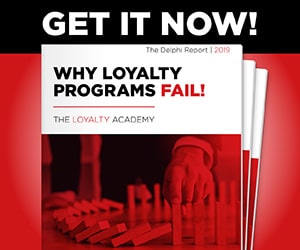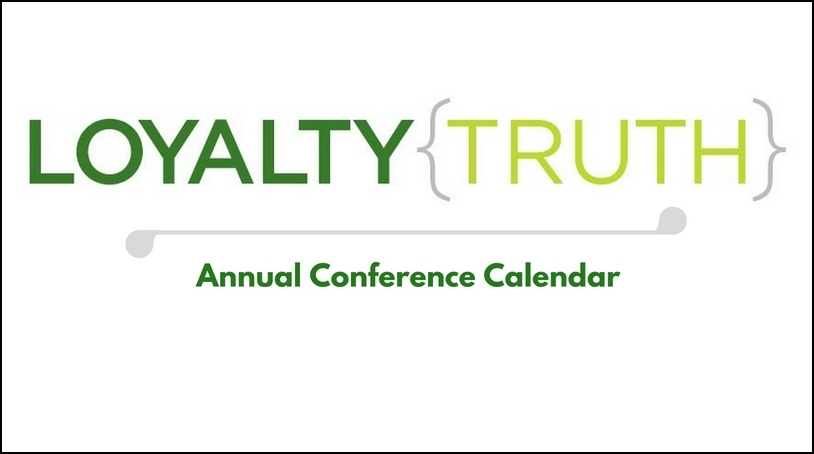An interesting article popped up today in London’s Telegraph. Written by Graham Ruddick, it puts forth a scenario through which Tesco, the leading UK grocer could elect to abandon its Clubcard customer loyalty programme.
At the core of the argument for considering such a move, Mr. Ruddick cites that “Tesco sales have been falling in the UK consistently for the past two years” as the chain has been battered by customer preference for internet grocery shopping as well as the simplicity of the pricing strategy offered by low-cost competitors Aldi and Lidi.
The argument continues with statements that customers prefer “gimmick-free” shopping in the discount chains as well as passive-aggressive attitudes about Tesco’s use of customer data more to its benefit than to Clubcard members themselves. Both of these comments were made in the article without specific reference to survey findings, but they do generally align with the findings of documented sources I have read citing consumer concerns about the veracity of value derived from their favourite loyalty program, and the threat of data collection turning evil in the hands of large-scale marketers.
Evidence UK grocer Waitrose turning towards free coffee give-aways to attract customers into their stores in lieu of traditional currency based loyalty programmes adds to the case that it might be time to shutter Clubcard. LoyaltyTruth.com participated in a discussion in the past week on RetailWire about the Waitrose approach to customer loyalty, and we shared our opinions on the discussion in this post.
As always, there are two sides to every argument and the side the Telegraph is missing is that the success of customer loyalty programmes do not take place in a vacuum. Here are some external factors to consider:
- There is a larger dynamic taking place in the UK grocery business and Tesco likely has some damage to repair and some catching up to do in order to reestablish its competitive might.
- Today, virtually every grocer, including Tesco, offers online shopping and home delivery of groceries. Is the Tesco service subpar compared to Aldi and Lidi?
- Has Tesco allowed the gap in its pricing from the low-cost providers grow beyond that which can be accounted for by a “better” shopping experience?
This brings along another key point regarding loyalty programs:
Smart marketers understand that all customers are not alike.
Some want nothing but the lowest price and will pick up their canned veggies off a dirty floor if need be to obtain the best price. Others appreciate shopping among sushi bars and cooking classes, or being able to enjoy a gourmet coffee or tea before heading into the aisles.
In other words, the greatest criticism of programmes like Clubcard will typically come from a customer group that values discounts, coupons, and lowest prices more than shopping experience or even product quality. If you disagree, then please let us know which retailers you treasure that offer the best shopping experience, highest quality product, while commanding the lowest prices among its competitors. I’ll bet you’ll be looking quite a while for that one.
Data is the final frontier of criticism in this case and I find it fascinating that consumers assume that data collected about them will not be used to their benefit. After all, Tesco is not HM Revenue service (British version of the IRS). Tesco wants shoppers to return and have been collecting data to help achieve this simple goal – shop more often, spend more of your total grocery budget within their stores, and marry up members and CPG’s (FMCG’s) together to create advantages all around.
It is possible that Tesco has lost its way in putting Clubcard member data to use. One of the unfulfilled promises of loyalty marketing is the failure of most loyalty sponsors to maximize the value of the precious data they have collected. We advocate for renewed investment in data analytics to ensure that loyalty programme members always feel that they data collected is being put to use to their benefit. Though Tesco was the pioneer in this area of data-driven marketing, it is possible they have slipped.
I have read several Millennial research studies that show the cohort is motivated by loyalty programmes and seeks to collect and redeem currency. Yes, the currency needs to be more liquid and rewards attainable, but I haven’t seen any research that says the younger digitally conversant consumer dislikes loyalty programmes and only wants to shop at the low price leader in a particular category. This group has been shown to appreciate value, shopping experience and quality, therefore they are not all alike, just as no other demographic group is homogeneous either.
Loyalty programmes have complex economics and many people focus on annual cost to operate a programme as a measure of their impact. The Telegraph article speaks of a “500 million pound investment by Tesco each year” and the sales needed to break even given a 10% contribution margin. I would be careful with this math. There are several streams of economic benefit to be gained from a customer loyalty program including incremental sales, retention benefits, and lowered cost of customer acquisition. Most outside observers fail to take all of these streams into account.
Retailers on the other hand, have a quixotic view of the real cost of discounts and sales. The accumulated amount of revenue reductions and lost profit margin is usually not shown on the income statement, rather these figures are calculated but taken as a contra to revenue, therefore are not visible to the outside observer. If the cost of these contra revenues were taken into account, the scales would be quickly balanced between the benefits of data-driven and price-driven marketing strategy.
Could Tesco make the decision to retire Clubcard? Anything is possible. Sitting in the airport the other day, I noticed the fine print on an American Airlines poster stated “American Airlines reserves the right to end the AAdvantage program with six months’ notice”. Just because they can does not mean they will do so.
Most importantly, Clubcard brings benefits to Tesco and to its customers who participate that can’t be matched should the programme no longer exist. The decision to terminate Clubcard would signify more about where Tesco is heading as a brand than whether its loyalty programme is working.




